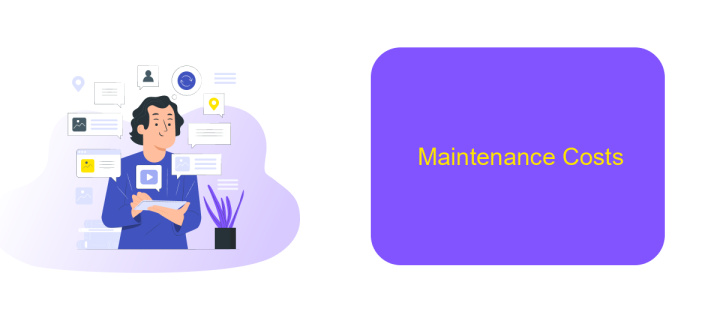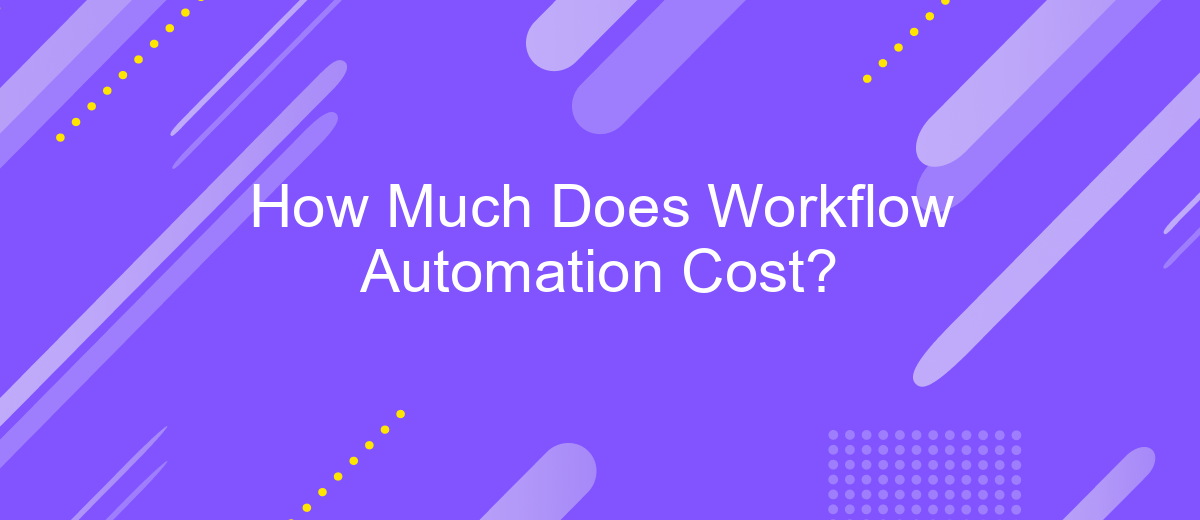How Much Does Workflow Automation Cost?
Determining the cost of workflow automation can be challenging, given the variety of factors that influence pricing. From software and implementation fees to ongoing maintenance and customization, the total expense can vary widely. This article aims to break down these costs, providing a clearer understanding of what businesses can expect when investing in workflow automation solutions.
Software Costs
When considering the costs of workflow automation, software expenses are a significant factor. The price of automation software can vary widely based on the features, scalability, and type of software chosen. Some solutions offer basic automation capabilities at a lower cost, while more advanced platforms with extensive features and integrations can be more expensive.
- Subscription fees: Many automation tools operate on a subscription basis, with monthly or annual fees.
- Licensing costs: Some software requires a one-time licensing fee for perpetual use.
- Integration services: Tools like ApiX-Drive help integrate various applications, which might involve additional costs.
- Customization and setup: Initial setup and customization to fit specific business needs may incur extra charges.
Investing in the right automation software can yield significant returns in efficiency and productivity. It's important to evaluate the total cost of ownership, including any hidden fees or long-term expenses, to make an informed decision. Utilizing integration services like ApiX-Drive can streamline the process and potentially reduce overall costs by simplifying complex workflows.
Implementation Costs

When considering the implementation costs of workflow automation, it's essential to factor in several key components. First, there are the initial setup costs, which include purchasing the necessary software and hardware. Depending on the complexity of the workflows and the specific requirements of your organization, these costs can vary significantly. Additionally, there may be expenses related to training your staff to effectively use the new system, ensuring that everyone is proficient and can maximize the benefits of automation.
Another crucial aspect to consider is the cost of integrating various tools and systems. Services like ApiX-Drive can be incredibly valuable in this regard, as they simplify the process of connecting different applications and automating data transfer between them. This can save both time and money by reducing the need for custom development work. Furthermore, ongoing maintenance and support costs should be accounted for, as regular updates and troubleshooting are necessary to keep the system running smoothly. By carefully planning and budgeting for these implementation costs, organizations can achieve a successful and cost-effective transition to workflow automation.
Training Costs

Training costs for workflow automation can vary significantly based on the complexity of the system and the level of training required for your team. Investing in proper training ensures that your team can effectively use the automation tools, thus maximizing the return on investment.
- Initial Training Sessions: These are essential to get your team up to speed with the new tools. Costs can include instructor fees, training materials, and potential travel expenses if the training is conducted off-site.
- Ongoing Support and Training: As your workflow automation system evolves, continuous training is crucial. This can include periodic refresher courses, advanced training sessions, and access to support resources.
- Integration Training: If you are using integration services like ApiX-Drive to connect various applications, specialized training may be needed. This ensures that your team can effectively manage and optimize these integrations.
While these training costs can add up, they are a necessary investment for the successful implementation and maintenance of workflow automation. Proper training not only enhances productivity but also helps in minimizing errors, thereby ensuring a smoother transition to automated processes.
Maintenance Costs

Once your workflow automation system is up and running, ongoing maintenance costs become an essential factor to consider. These costs ensure that the system remains efficient, secure, and up-to-date with the latest technological advancements.
Maintenance costs can vary depending on the complexity of your automation setup and the frequency of updates required. Regular monitoring and troubleshooting are crucial to prevent any disruptions in your automated processes.
- Software updates and licensing fees
- Technical support and troubleshooting
- Integration adjustments and enhancements
- Data backups and security measures
Utilizing services like ApiX-Drive can significantly streamline the process of managing integrations, reducing the time and effort required for maintenance. By automating data transfers between various applications, ApiX-Drive helps to minimize potential issues and ensures that your workflow automation system operates seamlessly.
ROI Evaluation
Evaluating the ROI of workflow automation involves analyzing both the tangible and intangible benefits it brings to your organization. Start by calculating the direct savings, such as reduced labor costs and increased productivity. Automation minimizes manual errors, leading to improved accuracy and efficiency. Additionally, consider the time saved on repetitive tasks, allowing employees to focus on more strategic activities. Tools like ApiX-Drive can streamline integrations, further enhancing productivity by seamlessly connecting various apps and services.
Beyond direct savings, assess the long-term value of workflow automation. Improved accuracy and efficiency can lead to higher customer satisfaction and retention rates, ultimately boosting revenue. Moreover, automation can provide valuable data insights, helping you make informed business decisions. By investing in tools like ApiX-Drive, you can ensure that your systems are well-integrated, maximizing the benefits of automation. In sum, a thorough ROI evaluation should encompass both immediate cost savings and the broader, strategic advantages that workflow automation offers.
- Automate the work of an online store or landing
- Empower through integration
- Don't spend money on programmers and integrators
- Save time by automating routine tasks
FAQ
How much does workflow automation typically cost?
Are there any hidden costs associated with workflow automation?
Can I try workflow automation tools before committing to a purchase?
What factors influence the cost of workflow automation?
Is it possible to start with a basic plan and upgrade later?
Apix-Drive is a simple and efficient system connector that will help you automate routine tasks and optimize business processes. You can save time and money, direct these resources to more important purposes. Test ApiX-Drive and make sure that this tool will relieve your employees and after 5 minutes of settings your business will start working faster.


